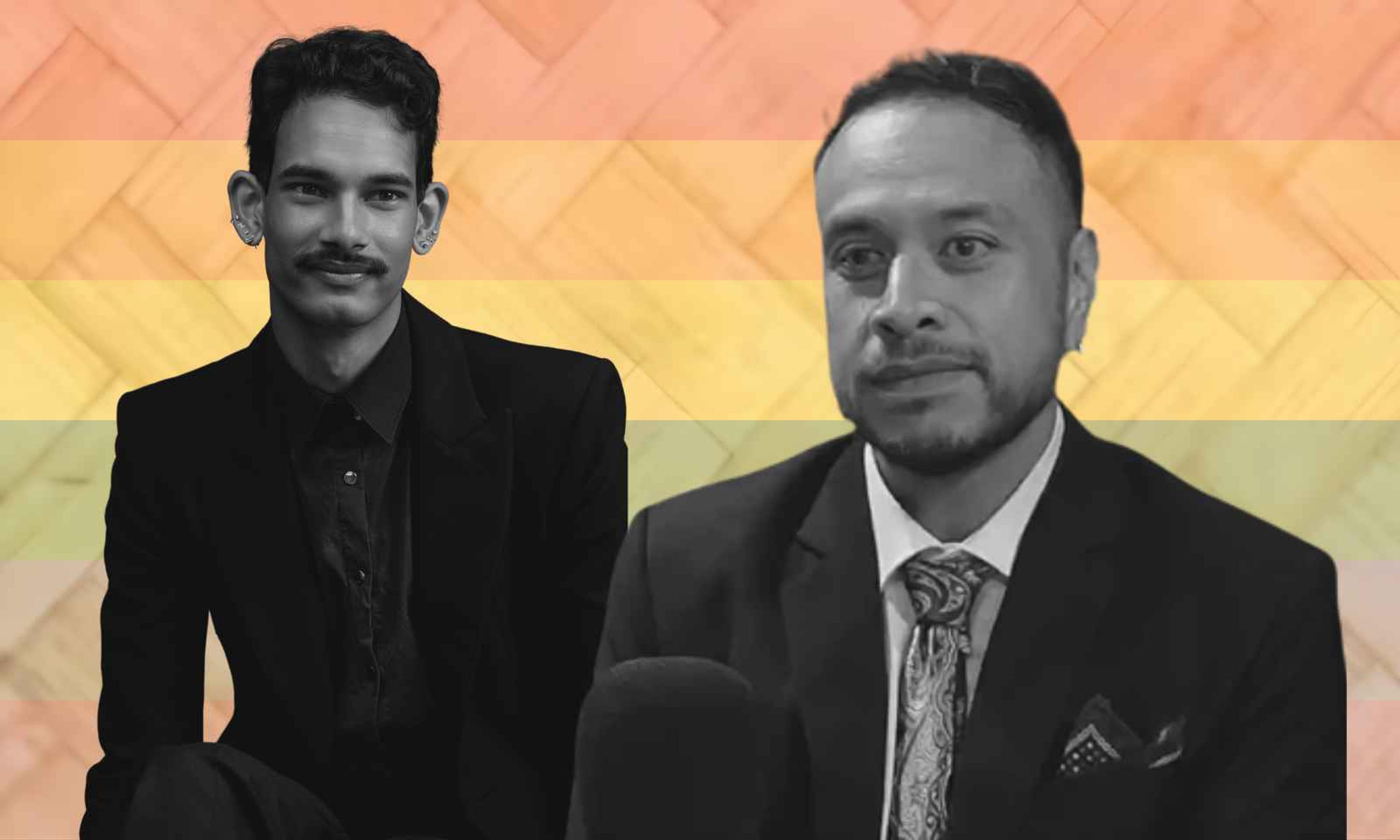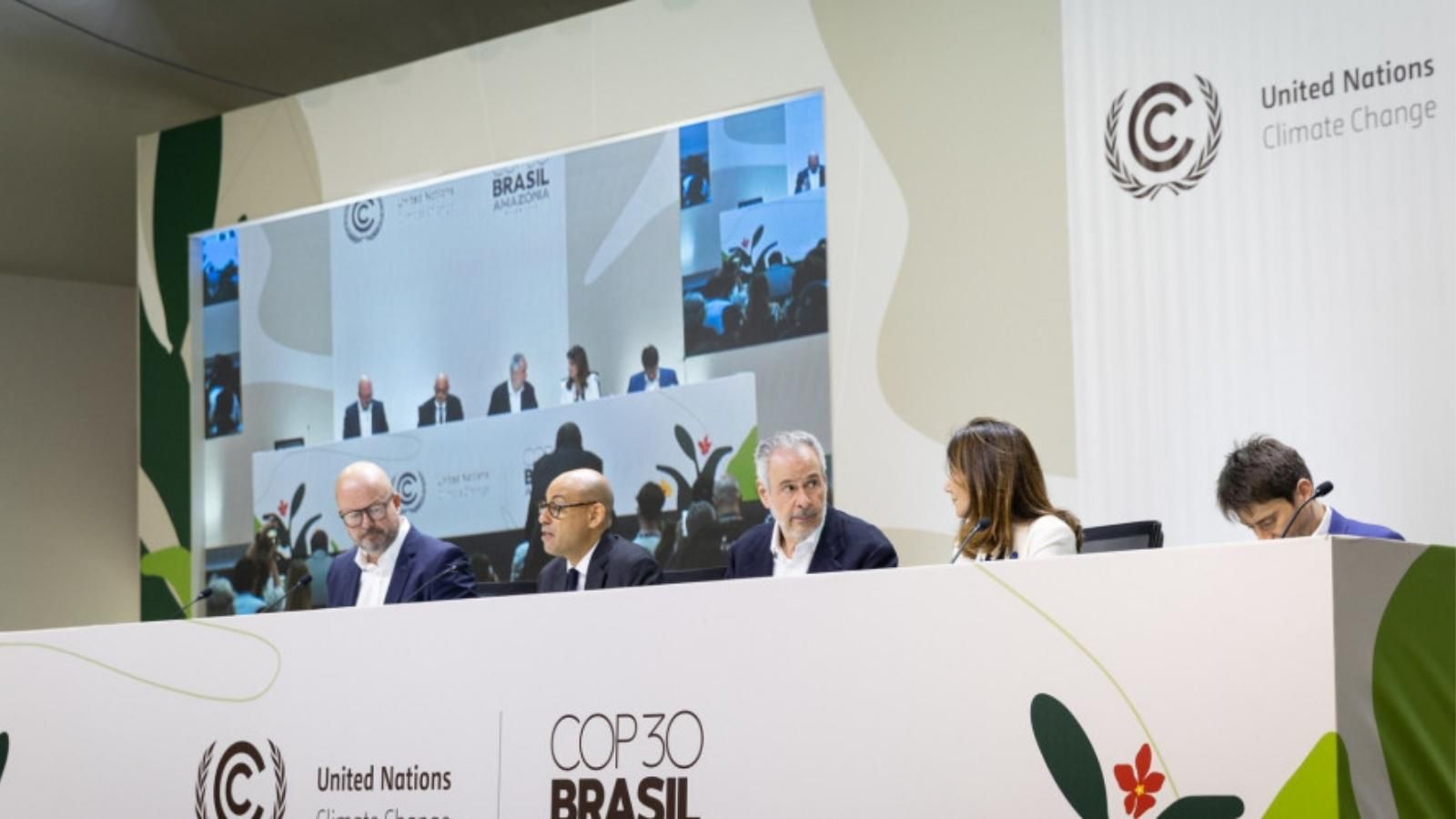

Simon Stiell, Executive Secretary of the United Nations Framework Convention on Climate Change, delivered the opening speech at COP 30 in Belém, Brazil, on Monday.
Photo/UN Climate Change/Kiara Worth
From Aotearoa to the Amazon: Youth lead Pacific climate advocacy at COP30
Four young advocates from Aotearoa have travelled to Brazil for the United Nations Climate Change Conference, and they are calling for stronger, child-centred climate action.


Budget relief buys time for Ōtara-Papatoetoe, but pressures remain


Moana Pasifika end Lautoka curse to win 'Battle of the Pacific'

NZ's Pacific Rainbow+ people are avoiding healthcare after facing discrimination - study

Budget relief buys time for Ōtara-Papatoetoe, but pressures remain


Moana Pasifika end Lautoka curse to win 'Battle of the Pacific'
Four young advocates have arrived in Brazil for a major global climate conference, determined to ensure children and Pacific communities are not left behind in the fight against global warming.
These rangatahi from Aotearoa New Zealand are calling for world leaders to turn promises into real, child-centred action.
Marking 10 years since the Paris Agreement, the 2025 United Nations Climate Change Conference (COP30) is being hosted in Belém, in the Brazilian Amazon, from 10 to 22 November. The Paris Agreement is a landmark 2015 accord which holds nations accountable to limit global warming to 1.5°C above pre-industrial levels.
The young leaders from Aotearoa are attending COP30 as part of Save the Children New Zealand. Speaking with William Terite on Pacific Mornings, Vira Paky, the Youth Engagement Coordinator at Save the Children New Zealand, says they are determined to highlight that meaningful change starts with people, not politics.
“When you land in COP 30, the only thing you feel is hope. When you see gatherings of children, young people and indigenous activists, you're getting the best experts on the ground amplifying their work,” Paky says.
“[You see] the actions they're taking and what they want to see from their policymakers and their leaders. You can only leave with that optimism because despite some of the levels of inaction, the power always lies with the people and the people are driving the change even if it’s not at the levels that we want to see.
“We are going to be holding leaders to account for the promises that they made [in the Paris Agreement] and hoping to deliver on some action. The importance of being in Brazil means that we're going to see indigenous populations like we have not seen before come together on these indigenous related climate negotiations.”

This year’s conference is being hosted in Belém, in the Brazilian Amazon, from 10 to 22 November, and marks the 10th anniversary of the Paris Agreement. Photo/UN Climate Change/Kiara Worth
Faiesea Ah Chee, also a Youth Engagement Coordinator, says representing both Aotearoa and the Pacific is deeply personal for her. Raised in Savai’i, Sāmoa, Ah Chee recognises the importance of discussion these issues.
“We don't really have a lot of these opportunities back home where we're able to talk about these issues. Now that I have the opportunity to represent my home island and Savai'i, it's really important,” Ah Chee says.
“I understand the frustration and sometimes it feels like the progress is too slow, but hope isn't something that we wait for, especially for COP. Just sharing our stories and emphasising the importance of why we keep advocating for protecting what's precious to us.”
Listen to Vira Paky and Faiesea Ah Chee’s full interview below.
Ah Chee and Paky will attend events hosted by Save the Children Italy and the New Zealand Government, and present the Aotearoa Youth COP Statement, developed by more than 100 young New Zealanders earlier this year.
Paky hopes to see new investments directed towards youth, specifically increased financial commitments for child-centred climate action strategies. She also wants to ensure that children and young people disproportionately impacted by climate change are recognised.
“One of the best things about COP is that it's a mix between the public sector and private. We’re not only going to see levels of investment from the government. With climate in particular, you have to think long past specific governments and administrations because we are playing that long game.
“So for me, [it’s about] expanding a little bit outwards because we know some of our private partners have the capacity to be a little bit more radical, more fast-paced, and they want to see some of their tangible outcomes a lot quicker. That’s where my eye is,” Paky says.
COP30 will conclude with the first global stocktake since the Paris Agreement, assessing whether nations are on track to limit warming to 1.5 degrees. The outcomes from Belém are expected to shape the agenda for COP31, which Australia and Pacific nations are bidding to co-host next year.